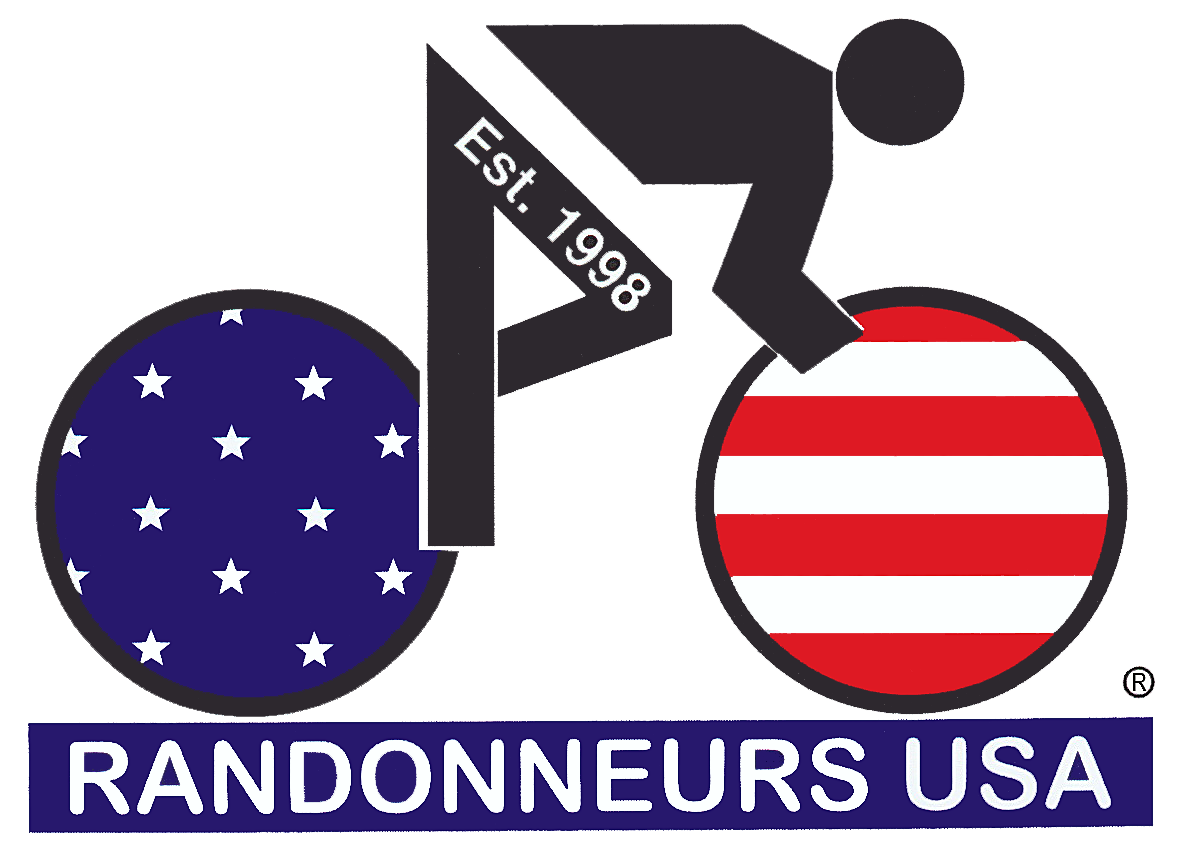Bill Bryant has been riding brevets since 1983 and is a two-time finisher of Paris-Brest-Paris. An organizer of local randonneuring events since 2000 with Lois Springsteen, he is also one of the founders of Randonneurs USA. Bill was on the RUSA Board of Directors from 1998-2006 and its President 2004-2005. Bill is also the recipient of the 2006 American Randonneur award. He is currently working on an in-depth history of Paris-Brest-Paris.
Hello Bill,
I'm new to randonneuring and saw something at a local brevet that I found confusing. While waiting for the start, I observed a couple of riders changing the start time on their brevet cards and getting ready to take off. I asked them about this and they said they were ready and didn't want to wait for the start; they would just adjust the opening and closing times on the subsequent controls to reflect their early start. They said an extra 15 minutes of daylight in the morning on quiet roads would be better than doing more riding in the dark later on. I don't know what happened to them after that, but are we allowed to do this?
Wow, that is a serious no-no! The event organizer sets the departure time and all riders must leave when he or she gives the signal to depart, or up to one hour after that. But one cannot leave early for any reason. Anyone changing a brevet card as you describe should expect to be disqualified, and I assume these riders were once they turned in their cards at the end of the ride.
Dear Bill,
My local club keeps track of the distances we ride each season and awards a trophy to the rider who accumulates the most miles ridden on club rides. But I've noticed RUSA doesn't do this in its various awards. Why not? I would think it would be swell to hold a nationwide competition of this sort.
Yes, some randonneuring clubs around the world do indeed try to proclaim one of its riders to be atop the heap each season, but Randonneurs USA sees it another way. First, our sport is supposed to be "noncompetitive long distance cycling." The RUSA founders took that seriously, and not just for the rides themselves but for the awards too. Virtually all our awards can be earned by any number of participants who fulfill the requisite distances, just like earning a medal if you finish the brevet successfully, or the Super Randonneur medal for doing a series of four brevets in a single season. The RUSA Board thinks this approach will encourage more riders to participate in randonneuring than just those who think they might win a singular award that is earned by doing the most kilometers, or being the fastest, or climbing the most hills, etc. Remember, if you seek out a "winner," then by definition you need to have a lot of "losers" or "also-rans" and that is not in keeping with our ethos of camaraderie. Thus, each year you'll see many randonneurs and randonneuses of all abilities earn various RUSA awards; the recipients are often rather different in terms of their athletic talent and riding speed—but they are also fairly equal in terms of the willpower they bring to finish each event. In this sense earning a Super Randonneur, Randonneur-5000, R-12, Ultra-Randonneur, or RUSA Distance medal makes one a member of a fraternity of determined riders and this is consistent with the idea that anyone who completes a brevet within the time allowance is considered to be equal to his or her fellow finishers. It is for this reason that American brevet results are published alphabetically, and not by arrival time. And finally, there is a more practical reason most folks will probably not have considered. Our yearly insurance fees for being a touring-oriented organization are considerably lower than if we organized racing events. RUSA offers low-cost event insurance that is used by a large number of the Regional Brevet Administrators around the nation. If American randonneuring was more competitive, with finishing lists organized by arrival time for example, then many of us would all find our brevet event entry fees and yearly RUSA dues to be a good bit higher. One of the good things about randonneuring is, in my opinion, that it remains a fairly low cost form of organized cycling and this helps us in the long run. Still, if you want some type of ranking award more than the fraternal type of award, then I suppose RUSA's award program is bound to disappoint you. However, our friends at the Ultra-Marathon Cycling Association organize a yearly mileage competition that you might like; many RUSA members participate in various UMCA events and award programs. Check it out at: http://www.ultracycling.com/
Hi Bill,
A randonneuring friend and I have a friendly wager we hope you can settle. He says Paris-Brest-Paris is the oldest cycling event still held on a regular basis. I think there is at least one older event, judging by what I infer from the RUSA website. It says PBP is the oldest event still held "on the open road." I suspect there must be something else. Can you settle the matter?
There is a track race in Australia and a short hill-climb race in England that have both been held more-or-less annually since the late 1880s. Thus, they pre-date the first PBP in 1891 by a few years and you win the bet.
Have a question about randonneuring? Send it to: bill_bryant@prodigy.net.
